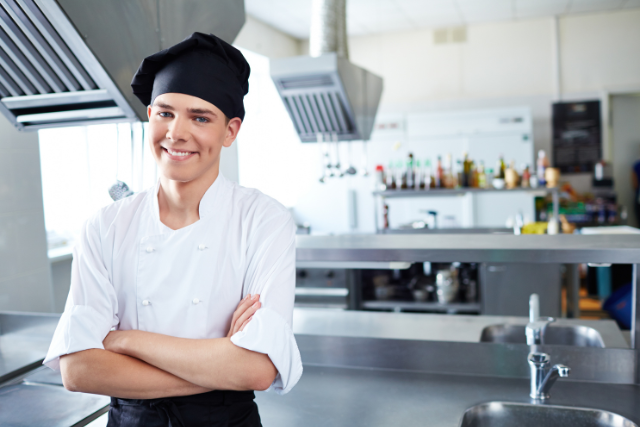
Cooking is more than just a means of sustenance—it’s an art form, a science, and for many, a therapeutic ritual. From the simple act of preparing breakfast to the complexity of crafting a gourmet dinner, cooking allows us to express creativity, connect with loved ones, and explore the vast diversity of global cuisines.
This article delves into the essence of cooking, its benefits, and tips to improve your skills, making every meal a masterpiece.
The Multifaceted World of Cooking
Cooking encompasses a wide spectrum of techniques, traditions, and tools. It varies from culture to culture, reflecting local ingredients, history, and customs. Whether it’s slow-smoking a brisket, folding delicate dumplings, or baking a crusty loaf of sourdough bread, each method holds its own charm.
1. Cultural Connection
Cooking connects us to our roots and enables us to explore other cultures. Preparing Italian pasta, Indian curry, or Japanese sushi allows us to experience flavors and traditions from around the world.
2. A Fusion of Art and Science
Cooking is a unique blend of creativity and precision. While plating a dish might demand artistic flair, baking requires exact measurements and an understanding of chemistry.
3. Health and Well-being
Cooking at home allows for complete control over ingredients, ensuring meals are healthier and tailored to individual dietary needs. It also fosters mindfulness and reduces stress, making it a wholesome activity for both body and mind.
Why Everyone Should Learn to Cook
Cooking is a life skill with numerous benefits. Beyond providing nourishment, it enriches daily life in unexpected ways.
1. Cost Efficiency
Preparing meals at home is often more economical than dining out or relying on pre-packaged foods. With some planning, you can create delicious, budget-friendly dishes that rival restaurant quality.
2. Creative Outlet
Experimenting with recipes and ingredients transforms cooking into a creative endeavor. Each dish becomes a canvas where flavors, textures, and colors merge to tell a story.
3. Social Bonding
Cooking for or with others strengthens relationships. Whether it’s hosting a dinner party or teaching your kids to bake, shared culinary experiences create lasting memories.
4. Sustainability
Cooking at home promotes sustainability. By buying local ingredients, reducing food waste, and avoiding excessive packaging, you contribute to a healthier planet.
Essential Cooking Techniques for Beginners
Mastering a few foundational techniques can significantly elevate your cooking game. Here are some basics to build confidence in the kitchen:
1. Knife Skills
Proper knife techniques ensure safety and efficiency. Learn to dice, julienne, and chop like a pro to speed up meal prep and enhance presentation.
2. Sautéing
Sautéing involves cooking ingredients quickly over medium to high heat with a small amount of oil. This technique is perfect for stir-fries, vegetables, and proteins.
3. Seasoning
Understanding how to use herbs, spices, and seasoning is key to creating flavorful dishes. Start with basics like salt, pepper, garlic, and fresh herbs, then expand to more exotic flavors.
4. Boiling and Simmering
Master these techniques for cooking pasta, soups, and grains. Knowing when to use a rapid boil versus a gentle simmer can make all the difference.
5. Baking Basics
From measuring ingredients to understanding oven temperatures, baking demands attention to detail. Start with simple recipes like cookies or muffins before venturing into intricate pastries.
Tips to Elevate Your Culinary Skills
Ready to take your cooking to the next level? Here are tips to enhance your kitchen expertise:
1. Invest in Quality Tools
Good cookware and utensils make a noticeable difference. A sharp chef’s knife, sturdy cutting board, and non-stick pans are essential.
2. Plan Ahead
Meal planning saves time, reduces stress, and minimizes food waste. Organize your week’s meals, make a shopping list, and prep ingredients in advance.
3. Experiment with Flavors
Don’t be afraid to step out of your comfort zone. Explore international cuisines, try new spices, or incorporate seasonal ingredients to diversify your palate.
4. Learn from Experts
Cooking classes, online tutorials, and recipe blogs offer invaluable insights. Follow chefs you admire and practice their techniques at home.
5. Taste as You Go
Constant tasting ensures the flavors are balanced. Adjust seasoning gradually, ensuring your dish reaches its full potential.
The Joy of Sharing Food
Cooking isn’t just about the act of preparation—it’s about sharing the results. Serving a meal to loved ones is a gesture of care and connection. Whether it’s a family dinner, a holiday feast, or a casual potluck, food has an unparalleled ability to bring people together.
Conclusion
Cooking is a journey of discovery, a way to nourish both body and soul. It’s a skill that evolves with practice, patience, and curiosity. From mastering simple techniques to crafting elaborate meals, the kitchen offers endless opportunities for growth and joy.
So, roll up your sleeves, tie on that apron, and let the culinary adventure begin. With every chop, stir, and taste, you’ll not only create delicious dishes but also memories to savor for a lifetime.
